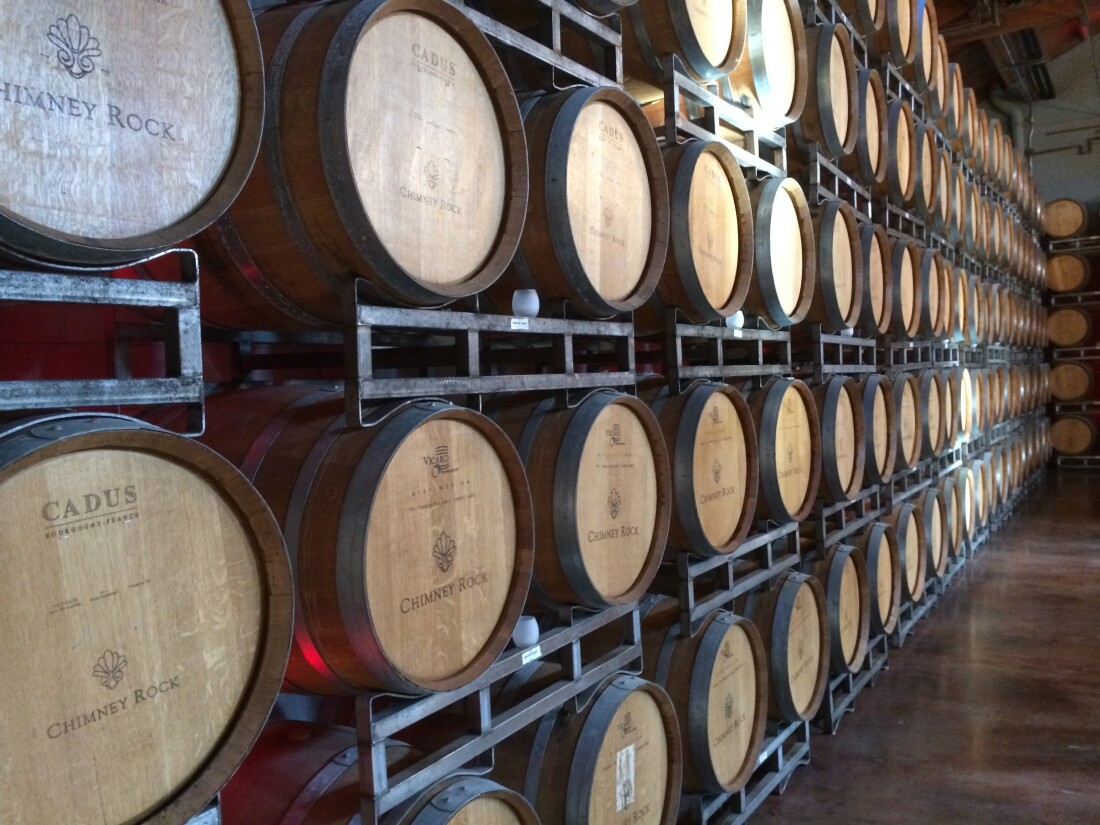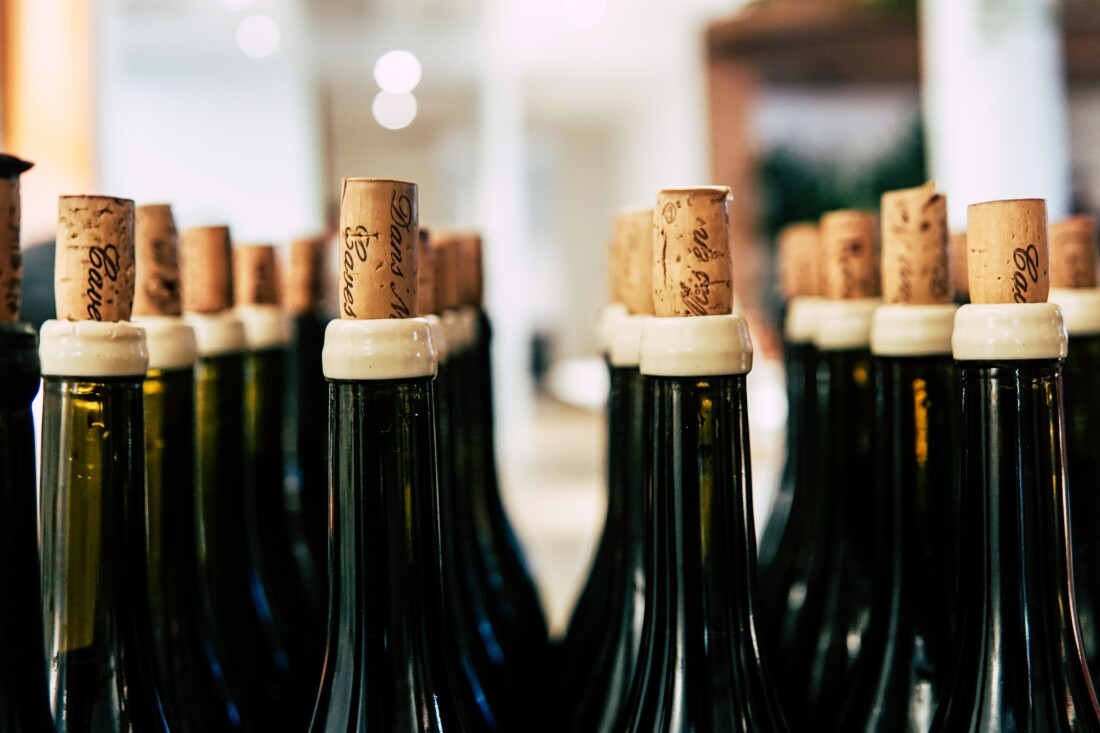Contact Us
Archives
Categories
- Coronavirus
- Senate Bill 99
- COVID-19
- House Bill 256
- Intellectual Property
- Agritourism
- HB 136
- Kentucky ABC Board
- S.T.A.R. Training System
- Hospitality
- Hospitality and Tourism Law
- Distilleries
- Legislation
- Alcohol Producers
- False Advertising
- Kentucky minimum wage
- Minimum wage
- Alcoholic Beverage Control Laws
- Three-Tier System
- Alcohol Tourism
- Craft Distilleries
- Craft Producers
- Microbreweries
- Small Farm Wineries
Developments in Federal Law – Alcoholic Beverage Regulation: Congress Makes the CBMTRA Permanent and TTB Expands Allowable Standards of Fill
CBMTRA
To many, Washington D.C. has been consumed by COVID-19 and turbulence over the election, but to the alcoholic beverage industry there has been one goal dominating policy discussions: to make permanent the 2017 Craft Beverage Modernization and Tax Reform Act (CBMTRA), which was slated for expiration on December 31, 2020.
With the President’s signature on the massive COVID relief and spending bill late on Sunday, the now-permanent excise tax reforms create a long-term, equitable tax structure for manufacturers and importers of all beverage alcohol, benefiting primarily newcomers to the industry such as craft distillers and microbreweries.
The omnibus legislation also permanently authorized the AGED Spirits Act, which allows distillers to deduct interest expenses in the year they are paid, rather than at the end of the lengthy aging process for Bourbon. This will free up important capital for investment and job creation.
 For distillers, the permanency of the CBMTRA means paying a reduced excise tax rate of $2.70 per proof gallon for the first 100,000 proof gallons of distilled spirits they produce, which most craft distillers do not exceed annually. Once a distiller exceeds that threshold, it pays a rate of $13.34 per proof gallon for the next 22,130,000 proof gallons of distilled spirits, and a rate of $13.50 per proof gallon for production in excess of 22,230,000 proof gallons. The higher rates would only be paid by the very largest distillers.
For distillers, the permanency of the CBMTRA means paying a reduced excise tax rate of $2.70 per proof gallon for the first 100,000 proof gallons of distilled spirits they produce, which most craft distillers do not exceed annually. Once a distiller exceeds that threshold, it pays a rate of $13.34 per proof gallon for the next 22,130,000 proof gallons of distilled spirits, and a rate of $13.50 per proof gallon for production in excess of 22,230,000 proof gallons. The higher rates would only be paid by the very largest distillers.
Similarly, for the malt beverage world, craft and microbrewers receive a favorable progressive tax schedule pursuant to which they pay $3.50 per barrel (31 gallons) on the first 60,000 barrels and $16 for subsequent barrels, if they produce less than 2 million barrels annually. Large brewers did not see any tax benefit with the permanency of the CBMTRA, as the previous excise tax rate for brewers producing over 2 million barrels annually remains the same and they will pay $16 per barrel on the first 6 million barrels produced and $18 per barrel on subsequent barrels.
Unlike beer and spirits, wine will not be taxed at new rates under the CBMTRA. Instead, wineries and importers will be able to apply different tax credits depending on wine production and the tax class of the wine in question. However, some of the existing tax classes were modified and now wines with 16% ABV and under are eligible for the lowest tax rate ($1.07 per wine gallon), whereas before only wines with 14% ABV and lower paid the lowest rate.
TTB Expands Allowable Standards of Fill
While Congress threw a lifeline to alcohol producers, the Alcohol and Tobacco Tax and Trade Bureau (TTB) finalized a rule that had received hundreds of comments, amending its regulations to provide flexibility to bottlers and wine and spirits producers, and to facilitate the international trade of alcoholic beverages. This change means that wine shops and liquor stores will soon have new types of bottles on the shelves that, for a long time, have not been allowed.
Wine and spirits consumers typically find spirits in 50 ml (airline bottles), 200 ml, 750 ml, 1 liter, and 1.75-liter bottles and very few wine bottles under 375 ml. Under the TTB’s new rule, that will change as a result of pressure from Japan, from wineries and cideries, and from senior lawmakers. The change now allows for spirits to be bottled in 700 ml, 720 ml, 900 ml, and 1.8-liter bottles, sizes which have been traditionally sold in Japan. After the United States entered into a trade agreement with Japan, which took effect Jan. 1, 2020, three Japanese trade associations and the Japanese National Tax Agency petitioned the TTB to include those bottle sizes in the final rule. The TTB agreed that, due to the use of those bottle sizes in other countries, including those sizes in the domestic U.S. market would facilitate trade and offer additional options to domestic consumers.
 Wine, on the other hand, is now available to be bottled or canned in 355 ml, 250 ml, and 200 ml containers after the TTB agreed with numerous wineries, cideries, and Sen. Chuck Schumer, who argued that the new sizes are popular single serving sizes that are readily available to producers, since they are already mass produced for beer and soda.
Wine, on the other hand, is now available to be bottled or canned in 355 ml, 250 ml, and 200 ml containers after the TTB agreed with numerous wineries, cideries, and Sen. Chuck Schumer, who argued that the new sizes are popular single serving sizes that are readily available to producers, since they are already mass produced for beer and soda.
The TTB also expanded the headspace tolerances for wine, allowing for less intense scrutiny over how full each bottle must be, allowed for distilled spirit labels to display the equivalent standard U.S. measure next to the mandatory metric measure, and allowed for malt beverages to be labeled with the equivalent metric measure alongside the mandatory U.S. measure.
The alcohol industry, like many others, has had to adapt quickly and repeatedly due to the COVID-19 emergency and the various responses from individual states. By Congress making the CBMTRA permanent and the TTB relaxing some of its strict regulatory framework, the alcohol industry is better equipped to innovate and stay in business.
For assistance understanding these new regulations and how they might affect your business, contact your McBrayer attorney today.
 Stephen G. Amato is a Member of McBrayer law. Mr. Amato focuses his practice in the areas of hospitality law, civil litigation, employment law, and administrative law, and is located in the firm's Lexington office. He can be reached at samato@mcbrayerfirm.com or (859) 231-8780, ext. 1104.
Stephen G. Amato is a Member of McBrayer law. Mr. Amato focuses his practice in the areas of hospitality law, civil litigation, employment law, and administrative law, and is located in the firm's Lexington office. He can be reached at samato@mcbrayerfirm.com or (859) 231-8780, ext. 1104.
 T. Neal Morris is an Associate with McBrayer in the Lexington office. Mr. Morris focuses his practice in the area of hospitality & tourism law, alcoholic beverage regulation, administrative law, employment litigation and insurance defense. He can be reached at (859) 231-8780, ext. 1259 or nmorris@mcbrayerfirm.com.
T. Neal Morris is an Associate with McBrayer in the Lexington office. Mr. Morris focuses his practice in the area of hospitality & tourism law, alcoholic beverage regulation, administrative law, employment litigation and insurance defense. He can be reached at (859) 231-8780, ext. 1259 or nmorris@mcbrayerfirm.com.
Services may be performed by others.
This article does not constitute legal advice.

